Etinosa Oghogho
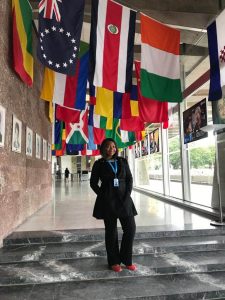
Etinosa during her internship at the World Health Organization in Geneva
Etinosa Oghogho has a passion for helping people and a passion for public health. Those dual passions recently landed her an internship at the Department of Reproductive Health and Research at the World Health Organization (WHO) Headquarters in Geneva.
“It was a great experience at the WHO, and I believe it has undoubtedly helped to bolster my career in global health and honed my research skills,” says Etinosa.
Etinosa, a native of Benin, Edo State, Nigeria, earned her bachelor’s degree in Microbiology from Covenant University in Nigeria. She also earned a Master of Public Health degree with a concentration in Community Health Education and Behavior from Georgia Southern University. Her research interests revolve around maternal and child health, global health, sexual and reproductive health, social determinants of health, and health disparities. Her dissertation research is centered on Vesico-Vagina Fistula (VVF) and its impact on the quality of life of affected women in Nigeria. The goal of her research is to influence the development of culturally-sensitive programs and policies to prevent VVF in the country.
Etinosa first became interested in public health while working on her undergraduate degree. While taking public health courses, she began to develop stronger interests in public health because she could relate what she was learning to the real world.
“I could practically relate to children and aged people dying because they were unaware that having a clean environment, using mosquito nets, or simply taking anti-malaria drugs could have prevented their ailments,” says Etinosa.
Experiences at the University of Wisconsin Veterinary Diagnostics Laboratory and the National Youth Service Corps program in Ekiti State, Nigeria, along with interactions with public health experts, expanded her knowledge about the public health field and strengthened her belief in health education, awareness, and promotion as the best form of preventive medicine. While at the WHO, Etinosa conducted research focused on making health systems stronger and on access to sexual and reproductive health services among women in low- and middle-income countries.
When considering where to pursue doctoral studies, Etinosa considered factors such as quality of research, strength in maternal and child health, faculty commitment to minority student development, networking opportunities, and post-graduate employment prospects. FIU excelled at all of these factors. Receiving funding via a graduate assistantship award was also an important factor in choosing FIU.
“As an international student from Nigeria, receiving the Graduate Assistantship award in addition to my family support truly influenced my coming to FIU,” says Etinosa, who is in the third year of her doctoral program. “After two years in the Health Promotion & Disease Prevention Department in the Stempel College of Public Health, I can confidently and joyfully say that I made the right decision. FIU is the perfect place for me.”
Since her enrollment into the doctoral program in Fall 2017, Etinosa has participated in two medical mission trips to Haiti and Nigeria with multi-disciplinary teams of medical and healthcare professionals. In Haiti, the teams delivered a sexual and reproductive health education program to approximately 300 women and adolescent girls. In Nigeria, Etinosa helped provide access to free medical care to approximately 1800 people.
“I am very passionate about helping others and deeply committed to international development,” Etinosa says.
Etinosa’s passion for helping others also includes her own community. She volunteers as a trained HIV/AIDS and STI peer educator for the Florida Department of Health. She’s also a volunteer at the Miami Rescue Mission Cover Girls program, where she helps women fleeing from domestic violence, sexual assault, and homelessness.
After completing her doctoral degree, Etinosa will seek a post-doctoral fellowship position where she can continue her research on VVF. After her post-doctoral fellowship, she plans to set up a non-governmental organization with the mission of advocating for the health and well-being of Nigerian girls.
“The NGO will focus on advocating for the educational rights of girls while providing sexual and reproductive health education, healthcare, and job training services,” Etinosa says.

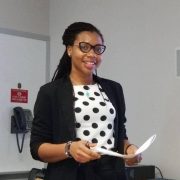
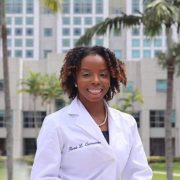
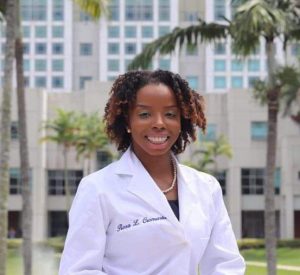 Rosa Cromartie’s interest in science dates all the way back to elementary school, when she was dissecting animals in science class. “My science and math courses had always been my favorite classes during my primary and secondary education,” Rosa says. “I became interested in chemistry when I got to high school.”
Rosa Cromartie’s interest in science dates all the way back to elementary school, when she was dissecting animals in science class. “My science and math courses had always been my favorite classes during my primary and secondary education,” Rosa says. “I became interested in chemistry when I got to high school.”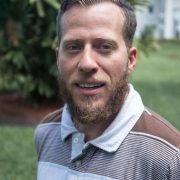
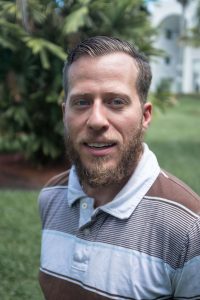 “Tropical forests are the lungs of the planet,” says 3rd-year biology doctoral student Aaron Hogan, explaining that tropical forests exchange the majority of atmospheric carbon dioxide and oxygen annually. It’s one of the many fascinating facts that drew Aaron to study tropical forests.
“Tropical forests are the lungs of the planet,” says 3rd-year biology doctoral student Aaron Hogan, explaining that tropical forests exchange the majority of atmospheric carbon dioxide and oxygen annually. It’s one of the many fascinating facts that drew Aaron to study tropical forests.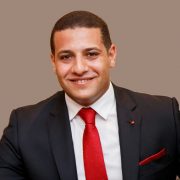
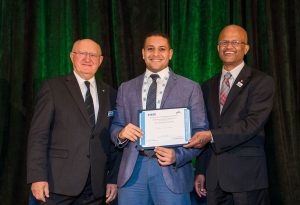 Hassan Eldeeb has been interested in green energy since his undergraduate days. His undergraduate and master’s degrees are in the field of electric power and machine engineering, and his master’s thesis was about the integration and operation of large-scale photovoltaic panels into the medium voltage electricity grid. He has always believed that research should have an impact on industry.
Hassan Eldeeb has been interested in green energy since his undergraduate days. His undergraduate and master’s degrees are in the field of electric power and machine engineering, and his master’s thesis was about the integration and operation of large-scale photovoltaic panels into the medium voltage electricity grid. He has always believed that research should have an impact on industry.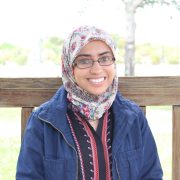
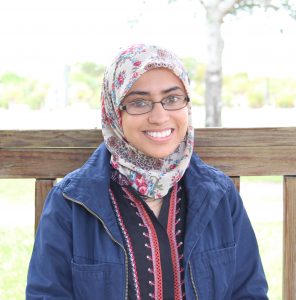 Even though biological systems and engineering are two paths that seem to lead in different directions, Sana Nasim has always envisioned pursuing a career in the two fields. In Pakistan, where Sana was born and raised, she says the study of highly specialized engineering fields is uncommon. Even rarer are women in these fields. Sana’s aspirations remained with her, however, and she is now working towards a doctoral degree in biomedical engineering, a field that merges her two dream career paths.
Even though biological systems and engineering are two paths that seem to lead in different directions, Sana Nasim has always envisioned pursuing a career in the two fields. In Pakistan, where Sana was born and raised, she says the study of highly specialized engineering fields is uncommon. Even rarer are women in these fields. Sana’s aspirations remained with her, however, and she is now working towards a doctoral degree in biomedical engineering, a field that merges her two dream career paths.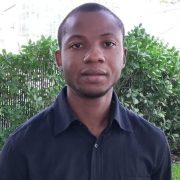
 Biology was Joshua Raji’s best subject when he was growing up. It was his favorite subject, and he was good at it. He suspects that he may have inherited his passion for biology from his mother. “My mum is a science teacher,” he says. “I guess it rubbed off on me.”
Biology was Joshua Raji’s best subject when he was growing up. It was his favorite subject, and he was good at it. He suspects that he may have inherited his passion for biology from his mother. “My mum is a science teacher,” he says. “I guess it rubbed off on me.”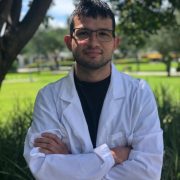
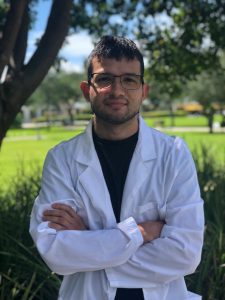 Becoming a biochemist might seem like an unexpected next step for a helicopter mechanic, but for Leonardo Acuna, the first recipient of the UGS Veterans Fellowship, it makes perfect sense. “I decided to be a mechanic for biological systems, and for me, that means becoming a biochemist,” he says.
Becoming a biochemist might seem like an unexpected next step for a helicopter mechanic, but for Leonardo Acuna, the first recipient of the UGS Veterans Fellowship, it makes perfect sense. “I decided to be a mechanic for biological systems, and for me, that means becoming a biochemist,” he says.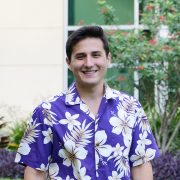
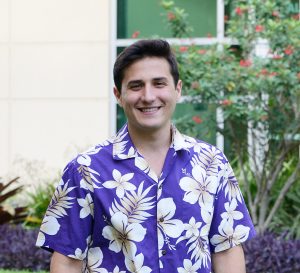 Juan Canoura has always been interested in science, but it was his high school chemistry teacher who helped him understand how deeply rooted chemistry is in our lives.
Juan Canoura has always been interested in science, but it was his high school chemistry teacher who helped him understand how deeply rooted chemistry is in our lives.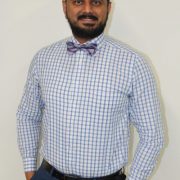
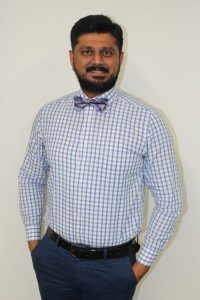 Chintan Bhatt, a doctoral student at the Robert Stempel College of Public Health and Social Work, was interviewed live on NPR Atlanta on July 19 for his research paper titled “Medicaid Expansion and Infant Mortality in the United States.”
Chintan Bhatt, a doctoral student at the Robert Stempel College of Public Health and Social Work, was interviewed live on NPR Atlanta on July 19 for his research paper titled “Medicaid Expansion and Infant Mortality in the United States.”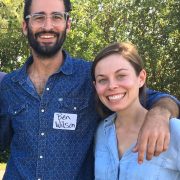
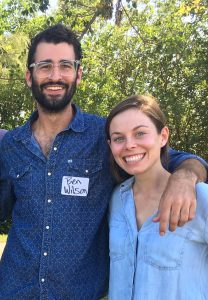 Doctoral candidate Shelby Servais and doctoral graduate Ben Wilson have been selected as Science Policy Fellows through the National Academies of Sciences, Engineering, and Medicine’s Gulf Research Program. Funded by the Deepwater Horizon settlement, the fellowship places scientists with offices in Gulf Coast communities so that they can experience the intersection of science and policy
Doctoral candidate Shelby Servais and doctoral graduate Ben Wilson have been selected as Science Policy Fellows through the National Academies of Sciences, Engineering, and Medicine’s Gulf Research Program. Funded by the Deepwater Horizon settlement, the fellowship places scientists with offices in Gulf Coast communities so that they can experience the intersection of science and policy